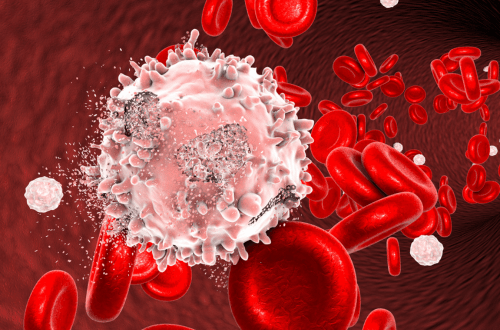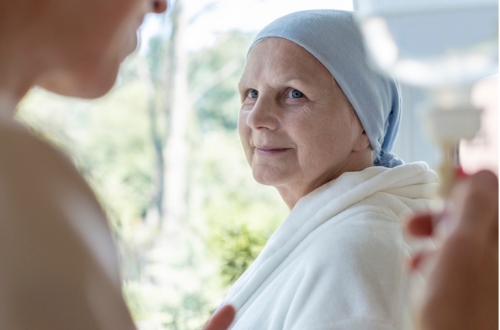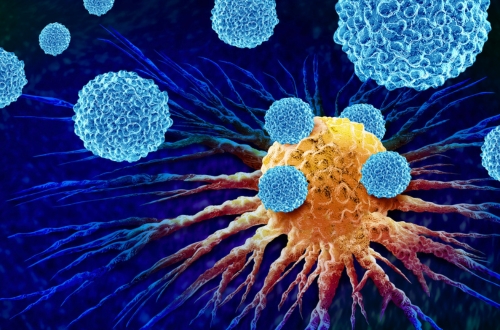Blood Cancer Awareness: How Specialized CROs Are Transforming Oncology and Hematology Research
Every year, September turns red to put a spotlight on one of the world’s most prevalent and dangerous cancers: blood cancer. Blood Cancer Awareness Month is a global event that is meant to boost oncology research and hematology research, helping raise awareness of blood cancer, its signs and symptoms and its impact since 2010. Blood cancers are a complicated group of cancers which can affect anyone, at any age, and at any time throughout their lives. The three main types of blood cancer include leukemia (cancer of the white blood cells [WBC] and blood-forming tissues of the body), lymphoma (cancer of the lymphatic system), and myeloma (cancer of the plasma cell, a type of WBC). According to the GLOBOCAN database, there were over 1.3 million cases of various blood cancers diagnosed in 2022.
With the tireless efforts of dedicated individuals, cancer organizations, and specialized CROs (contract research organizations), Blood Cancer Awareness Month aims to improve early diagnosis rates and ultimately enhance treatment outcomes. In today’s challenging therapeutic landscape of blood cancer clinical trials, oncology CROs have consistently been at the forefront of transforming oncology and hematology research. To explore this further, this article will discuss the latest key advances for clinical research in blood cancer, as well as spotlight the role of specialized oncology and hematology CROs like TFS HealthScience in making these advancements possible.
What is a Contract Research Organization (CRO) in Oncology Research?
A CRO is a specialized external company that supports and manages various aspects of clinical trials for pharmaceutical, biotechnology, and medical device clinical research companies (sponsors). Sponsors can outsource one or more of their own trial-related duties and functions to a CRO on a contractual basis at any point during the lifecycle of a clinical trial, although this must be specified in writing. Most importantly, the ICH E6 (R2) Good Clinical Practice (GCP) guidelines dictate that even if a CRO is contracted to manage any or all of a sponsor’s trial-related duties, the sponsor is still ultimately held responsible for the quality and integrity of the trial data. Examples of trial-related activities that can be outsourced to a CRO include clinical trial management, regulatory compliance oversight, and data management and analysis.
Click here to discover the top 10 oncology CROs of 2024!
As with the clinical research industry itself, different CROs offer varying expertise across one or more therapeutic areas. Many industry leaders like IQVIA, PPD, ICON, and TFS are globally recognized specialized CROs that possess divisions covering several therapeutic areas ranging from dermatology and rare diseases to oncology and hematology. Other companies like Cmed, Theradex, and Medelis are considered niche oncology CRO and hematology CRO companies that offer expertise exclusive to the fields of oncology and hematology. These specialized CROs are especially relevant for addressing the complex landscape of therapeutic fields like oncology research and hematology research.
Read more here about the current demand for oncology CRO services, as well as the services and capabilities these CROs have to offer for sponsors.
Specialized CROs and Their Importance in Clinical Research in Blood Cancer
There’s no doubt that specialized oncology CROs and hematology CROs have played a significant part in furthering clinical research in blood cancer with their tailored expertise and innovative solutions. The global oncology CRO market size was valued at United States [US]$1.33 billion in 2023 and is projected to grow at a compound annual growth rate (CAGR) of 8.58% from 2024 to 2030. These specialized CROs bring several tailored capabilities, namely the following three, that support biopharma, biotech, and pharma companies in designing studies that address the unique challenges of blood cancers.
- Regulatory Strategy: Global oncology and hematology CROs like TFS with an extensive existing profile of blood cancer clinical trials are already familiar with the local regulatory landscape in different regions worldwide. This expertise helps ensure a sponsor’s oncology/hematology trial remains compliant with organizations like the US Food and Drug Administration (FDA), the European Medicines Agency (EMA), Health Canada, and more.
- Patient Recruitment: Oncology CROs especially excel in this area, especially considering that many blood cancers are rare diseases that have a limited pool of potential clinical research participants to recruit from. They typically have existing networks around the world to leverage and engage diverse patient populations critical for robust trial results.
- Trial Management Expertise: Additionally, their expertise in trial management plays an important role in ensuring that blood cancer clinical trials are conducted efficiently and ethically to minimize delays and optimize resources.
Leading oncology CROs also often offer the latest technologies in patient data collection, such as electronic patient reported outcome (ePRO), electronic data capture (EDC), and electronic clinical outcome assessment (eCOA) tools, as well as advanced trial data analytics. With these digital advantages, collaborating with a CRO permits pharma companies to focus on their core competencies, which improves resource allocations and can bring greater cost savings.
To learn more about what CROs do for clinical trial sponsors, visit our article here!
The Challenges of Undertaking Blood Cancer Clinical Trials
One of the primary reasons for outsourcing to an oncology CRO or hematology CRO for sponsors is their ability to help them navigate common challenges associated with clinical research in blood cancer. According to this article, three key examples of these challenges include the complex logistics of blood cancer clinical trials, low patient awareness, and the need for vigilant patient safety monitoring.
- High Logistical Complexity: Blood cancer clinical trials require specialized expertise from teams at both the management and site levels. Oncology CROs are already trained and come equipped with the necessary infrastructure and technology to support this sort of complexity. Some CROs like TFS even offer Strategic Resourcing Solutions (SRS) to hire and onboard the right experts to support your oncology trial teams.
- Low Patient Awareness: Although patients affected by blood cancers are typically motivated to participate in oncology research, patient recruitment into these trials is still slow. By leveraging over 40 years of experience in running oncology and rare disease clinical trials, TFS employs tailored enrolment strategies to ensure high recruitment efficiency.
- Increased Patient Safety Monitoring: The higher stakes associated with oncology research means these trials have a much greater volume of adverse events and deaths that must be documented. For this reason, the existing trained pharmacovigilance teams offered by many oncology/hematology CROs allows safety monitoring in blood cancer clinical trials to be conducted with a higher level of review and oversight.
Read more about how TFS’s patient recruitment strategies were able to drive early-phase success in this oncology case study here!
Current State of Clinical Research in Blood Cancer and the Impact of Oncology CROs
According to the US National Cancer Institute (NCI), the five-year survival rates of blood cancers has improved significantly across the board between 1990 and 2018, from 45% to 65.7% for leukemia, 51% to 73.8% for non-Hodgkin lymphoma, and 29% to 57.9% for multiple myeloma. A considerable part of these impressive accomplishments within clinical research in blood cancer can be attributed to greater resource allocations, dedication to novel research and development (R&D) efforts by sponsors, and technological advances supported by oncology CRO and sponsor partnerships.
Specifically, as specialized CROs take the hassle of managing day-to-day tasks in clinical trials off the plates of sponsors, pharma companies can better focus on developing new therapies for patients. For example, chimeric antigen receptor (CAR) T-cell therapy, antibody-drug conjugates (ADCs), and bispecific antibodies are a major area of research currently for blood cancers like multiple myeloma. In 2022 alone, the US FDA has approved three new drugs to treat multiple myeloma, including the bispecific antibody Tecvayli (teclistimab), and two CAR T-cell therapies, Abecma (idecabtagene vicleucel) and Carvykti (ciltacabtagene autoleucel). Visit this article to explore current approved therapeutic approaches for treating blood cancer, such as immunotherapy, stem cell transplantation, targeted therapy, and more.
More recently in August 2023, Talvey (talquetamab-tgvs), a bispecific antibody treatment engineered to force cancer cells and immune cells to make contact, received accelerated approval by the US FDA. Trial data for the drug demonstrated nearly 74% of patients achieved partial or total cancer disappearance, demonstrating Talvey’s potential to provide hope for the over 35,000 Americans who were estimated to be diagnosed with multiple myeloma in 2023. With their ability to unify clinical operations (ClinOps) of blood cancer clinical trials, oncology CROs are significantly reducing trial execution times, helping sponsors address potential challenges before they become major concerns. Specialized CROs are also at the forefront of the recent shift from traditional paper-based to digital management of trial activities, supporting more efficient clinical trials, helping treatments reach the market for use in patients faster.
How TFS Oncology CRO is Supporting Industry Advancements in Blood Cancer
TFS CRO offers extensive capabilities in oncology and hematology, having supported over 300 clinical trials, including a third dedicated to complex oncology and hematology studies. TFS has been able to achieve consistent operational success with the leadership and expertise of their oncology and hematology team, which has specialists who understand the challenges of these trials. Their experience includes trials for NSCLC, breast cancer, prostate cancer, solid tumors, HPV/cervical cancer, and malignant hematology studies, as well as nearly 800 sites vetted and managed and almost 9000 participating patients.
By focusing on innovative trial designs and leveraging cutting-edge technology, TFS is able to accelerate the development of novel therapies for blood cancer patients. One of the key strategies employed by this oncology CRO is their active involvement in collaborative partnerships with leading research institutions, pharmaceutical companies, and healthcare organizations. These partnerships facilitate the sharing of knowledge and resources between researchers and other stakeholders, fostering a supportive collaborative environment that can help expedite drug development in blood cancer clinical research. TFS’s commitment to operational excellence and quality assurance also ensure the credibility of your blood cancer clinical trial results, while reinforcing our reputation as a trusted partner in the field of oncology research.
Visit our Oncology and Hematology Intellect Hub resources to learn how TFS is changing the game across numerous cancer case studies!
Conclusion
To wrap up, specialized CROs like TFS Oncology & Hematology have established an important place for themselves within clinical research for blood cancer. Sponsors have increasingly grown to rely on these organizations in recent decades because they already have the infrastructure, oncology-trained clinical research professionals, and previous experience dealing with the challenges of blood cancer clinical trials. As we enter Blood Cancer Awareness Month this September, we’re seeing how essential the partnership between oncology CROs and sponsors have become more than ever now. By participating in awareness campaigns, supporting research initiatives, and promoting public health education, we can contribute to improving early diagnosis rates and treatment outcomes for those affected by blood cancers. Join TFS this September to raise awareness of blood cancer and make a meaningful difference in research efforts in the fight against this disease.
Visit bloodcancermonth.org to learn how you can support this movement today.
About TFS Oncology & Hematology CRO
TFS HealthScience is a global oncology and hematology CRO that supports biotechnology and pharmaceutical companies throughout their entire clinical development journey in cancer clinical research. In partnership with customers, we build solution-driven teams working for a healthier future, supporting the fight against both solid tumors and blood cancers. As a trusted CRO partner throughout this journey, we understand the importance of providing essential and diverse services to streamline blood cancer clinical trials for our clients. Visit our website to learn more about our wide range of expertise in oncology & hematology, and the solutions TFS can offer for your next cancer trial. Connect with a TFS representative today!
Connect with Us
Contact us today to discover how TFS can be your strategic CRO partner in clinical development.



